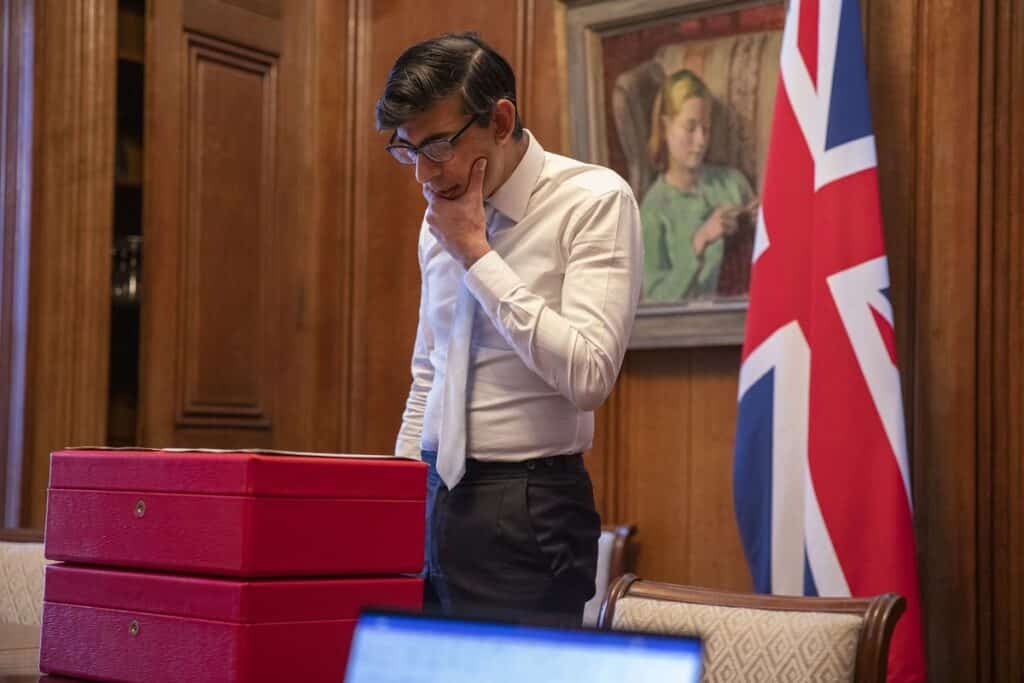Rishi Sunak is to acknowledge that the coronavirus pandemic will lead to a steep rise in long-term unemployment today when he announces a £4.3 billion package to help the jobless.
The economic devastation will be made clear in a series of forecasts published by the Office for Budget Responsibility (OBR) alongside the Whitehall spending round. The Resolution Foundation, a think tank, has suggested that the central forecast will show a permanent reduction in GDP of 3 per cent, equivalent to £1,000 a head.
Government borrowing will be close to £400 billion this year as public spending jumps above 50 per cent of GDP, a level not seen since the Second World War, and the national debt reaches a 60-year high. However, updated GDP forecasts will show that the economy is on track for a V-shaped recovery. After a shrinkage of about 10 per cent this year, the deepest recession in three centuries, Britain will have its fastest growth since 1941.
The OBR will also publish an estimate of the consequences of a no-deal Brexit. The timing, as Britain and the EU seek a deal, is particularly sensitive.
Yesterday Mr Sunak, the chancellor, said that employment was his “number one priority” during the “acute phase of the crisis”. He will vow to minimise the damage, saying that no one should be left without hope or opportunity.
The three-year, £2.9 billion Restart programme of support will include monthly face-to-face interviews and workshops to improve skills, with training tailored to the local job market.
Mr Sunak will put another £1.4 billion into help for those jobless for more than three months. It follows a recent doubling to 13,500 of the number of work coaches in jobcentres. He will confirm funding for the next stage of his “plan for jobs”, including £1.6 billion for the Kickstart programme, which the Treasury has said will create up to 250,000 state-subsidised roles for young people.
The scheme, which was launched in August and offers employers £2,000 for each apprentice they take on, is to be extended to the end of March.
There will also be a £375 million skills package, including £138 million to deliver Boris Johnson’s so-called lifetime skills guarantee. At least 750,000 people have lost their job this year and the number out of work for more than six months has increased by 72,000. The OBR is expected to warn that up to a million more jobs could be lost, though the extension of furlough until March should prevent 1980s-style unemployment. The Bank of England recently lowered its estimate of peak unemployment from 8 per cent to 7.7 per cent, up from 4.8 per cent today.
However, tax rises of about £50 billion will be needed simply to balance day-to-day spending, according to Oxford Economics, a forecaster.
Torsten Bell, chief executive of the Resolution Foundation, said: “The scarring effect of Covid on the economy could cost every adult in Britain £1,000 by the middle of the decade. But the long-term effect of Brexit on the economy will be significantly bigger, with households having already felt that via higher inflation in recent years and private sector investment growth slowing significantly. A no-deal Brexit would significantly increase the impact on public and household finances.”
Matthew Fell, policy director of the CBI, said that the chancellor was right to focus on the “scarring effects of long-term unemployment”.
Separately, the OBR is likely to suggest that a no-deal Brexit would have a significant impact on GDP. Andrew Bailey, governor of the Bank of England, said this week that the long-term impact could be worse than the virus.


